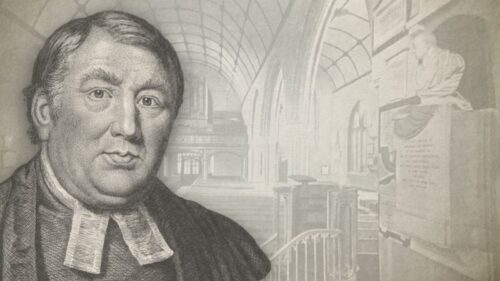
October 28—Morning Devotion
“Casting all your care upon him; for he careth for you.”—1 Peter 5:7
Yes, blessed Jesus, I would cast all upon thee: sins, sorrows, trials, temptations. Thou art the Almighty Burden-bearer of thy people; for the Lord Jehovah hath laid on thee the iniquity of us all. And as thou bearest all our sins, so thou carriest all our sorrows. And dost thou not bear all the persons of thy redeemed? Dost thou not bear all our troubles, all our exercises, all our temptations, trials, difficulties? The government is upon thy shoulder; the care of the churches is all with thee. And shall I not cast all my care upon thee? Shall I be careful for many things, while Jesus saith, “Cast thy burden upon the Lord, and he shall sustain thee?” Oh for grace to sit loose to all things, and to leave all things with thee. Lord, do thou bear me up when I am falling, support me when weak, uphold me against all mine enemies, carry me safe through a life of grace here—and, finally, bring me home to thy glory, to behold thee, and dwell with thee for ever.
Robert Hawker (1753-1827) was an Anglican (High-Calvinist) preacher who served as Vicar of Charles Church, Plymouth. John Hazelton wrote of him:
“The prominent features…in Robert Hawker's testimony…was the Person of Christ….Dr. Hawker delighted to speak of his Lord as "My most glorious Christ.” What anxious heart but finds at times in the perusal of the doctor's writings a measure of relief, a softening, and a mellowing? an almost imperceptible yet secret and constraining power in leading out of self and off from the misery and bondage of the flesh into a contemplation of the Person and preciousness of Christ as "the chiefest among ten thousand and the altogether lovely." Christ and Him crucified was emphatically the burden of his song and the keynote of his ministry. He preached his last sermon in Charles Church on March 18th, 1827, and on April 6th he died, after being six years curate and forty-three years vicar of the parish. On the last day of his life he repeated a part of Ephesians 1, from the 6th to the 12th verses, and as he proceeded he enlarged on the verses, but dwelt more fully on these words: "To the praise of His glory Who first trusted in Christ." He paused and asked, "Who first trusted in Christ?" And then made this answer: "It was God the Father Who first trusted in Christ."
Robert Hawker on the Biblical Covenants (Complete)
Robert Hawker's Poor Man's Morning Portions





